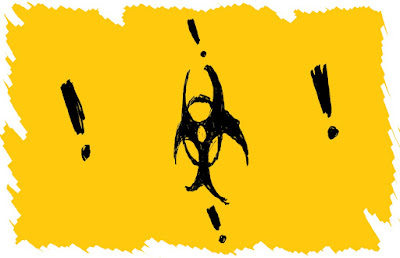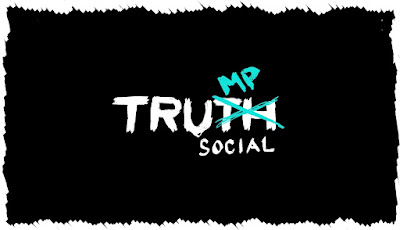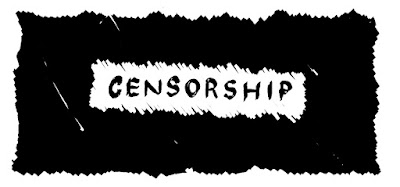And now the whole world is infected.
The United States' values, exported so confidently to the world, may be contradictory and confused when practised by such a powerful central state. They really are the values of a non-state militia, which the US government originated as.
The United States was founded by people who committed treason and riots. Since then, America emerged from a long isolation and into the fortunes of war and conquest, and then began presenting its anti-state values as a model for states. As such, not just modern liberal interventionism but even the values of 1776 are at fault for confusing and undermining other countries.
US allies like Britain, dependent on American military and economic power to look strong, pretend we share American values. We don't, and even promoting them verbally and repeating the rhetoric is incredibly foolish of British authorities, but that is a matter for another time.
America's presidents are encased in bullet-proof glass to protect themselves from their own ideology.
The right to overthrow tyrants
The American right to bear arms is, in the current view of Americans, meant to defend against an abusive government. In keeping with it, America stands ready to provide arms to people in other nations to help them overthrow their apparently oppressive rulers.
To teach someone that your country (the state) is for freedom (revolt against the state) produces such problems for a state as whistle-blowers who expose its war crimes and gunmen eager to shoot politicians. Although the former can be obviously beneficial to the community, neither are conducive to a super-state's effectiveness or power.
Even Julian Assange and other "anti-American" publishers, silenced by the US government, acted on values related to countering excessive government authority. Those are values that originated in the creation of the United States. They are eating one of their own children. Assange isn't motivated by the values of Russia, China, Germany or even Britain. In these countries, if you break the law, you are bad, and that is the end of it.
British authorities reacted more harshly to whistle-blowers and activists than even the Americans, just as they act more harshly towards any mockery of the government. The British authorities really are horrified simply at the idea that anyone might break the law under any circumstances, even if nobody gets hurt.
Only Americans, or those influenced by them, debate whether breaking their own laws is okay. Admittedly, though, America's influence is so vast that it now reaches all of us - even those who prefer not to admit it.
The "traitor" Edward Snowden was in fact a highly patriotic individual and, on a darker note, so were every American implicated in the treason of the January 6 Capitol Attack. They were firm believers in the US ideology, and it led them to become the biggest betrayers of the US government.
Domestic terrorist land
Unlike in other countries, American seditionists all think they are loyal to the nation, and they are doing as they were told. They were not indoctrinated by a foreign power or terrorists, but by their own constitution, their own government's rhetoric.
Even the wording of the pledge of allegiance allows for Americans to seemingly identify their own politicians as traitors. It does so by stating that you are not pledging allegiance to the state but to a written constitution that has enemies "foreign and domestic".
The US government makes a conscious attempt to avoid its values undermining itself, by shifting all the emphasis on freedom and liberty to an aggressive foreign policy against tyrants abroad while encouraging loyalty and obedience at home. The problem is that these are polar opposite values, and everyone at home is listening to the foreign policy rhetoric too.
If they want, Americans can just turn off the TV when the government appeals for loyalty and obedience, and watch the TV when their government celebrates the death of state officials and "tyrants". People are then left with a lust for the government's blood, thanks to its irresponsibility.
At least on social media, you are likely to find a significant overlap between those Americans who supported the Capitol Attack and those who voiced approval of uprisings in Iran, Venezuela and Cuba in keeping with US aims.
Every time the US government opens its mouth to talk about liberty and rising up against oppression, it is accidentally encouraging its own population to overthrow the government. Such messaging also pervades American culture. American movies extolling the virtues of overthrowing the state encourage them to overthrow the state.
While most states are accustomed to hypocrisy and breathe it to survive, normal citizens aren't. Most people try to stick to the values they hold in their hearts, and Americans are very much like that. They can't help trying to destroy the government if they have been taught an ideology that endorses destroying the government.
This explains the "domestic terrorism" problem. It isn't really new or alien to America, but is what made the country. From the moment those first domestic terrorists took up arms against Britain to gain independence, America was destined to be domestic terrorist land.
Loyalty or liberty?
The contradiction in how the US handles "freedom" is evident in the role the US played in creating the internet and encouraging it in other countries, and the extent to which it now fears foreign influence feeding back through the internet to America.
American engineers and entrepreneurs, who really believed in the values their state preached, actively created ways to encourage freedom and bypass censorship. The US state, however, turned out to be one of the biggest complainers about the internet and independent media, whining that Russians and others were using tiny social media accounts to undermine US democracy in 2016.
Social networks themselves showed signs of becoming state-like despite their anti-state origins too, and are provoking states to wrestle with them. Still, America and American companies demand other countries be "open" to their supposedly benign media influence, while America itself slams its doors to any other country's influence, labelling it as malign.
Militias are present in the US, and talk of opposing the government is commonplace. The groups see themselves as counterparts to fellow Reagan-style "freedom fighters", contras and protesters supported overseas by the machine of the American state.
Repeated US encouragement of overthrowing corrupt regimes and dismissing election results must have at least helped encourage the Capitol Attack on themselves, and the conflicted ideology encouraging disloyalty and loyalty makes it certain to happen again. Many Americans perceive their own government as a pretender, helped by their belief in values that always dismissed authority and celebrated mutiny.
Past isolationism and minimisation of the government's role allowed a country to exist despite its destabilising insurrectionist values. Thanks to their aggressive assertion across the world, such values are louder than ever but risk backfiring.














